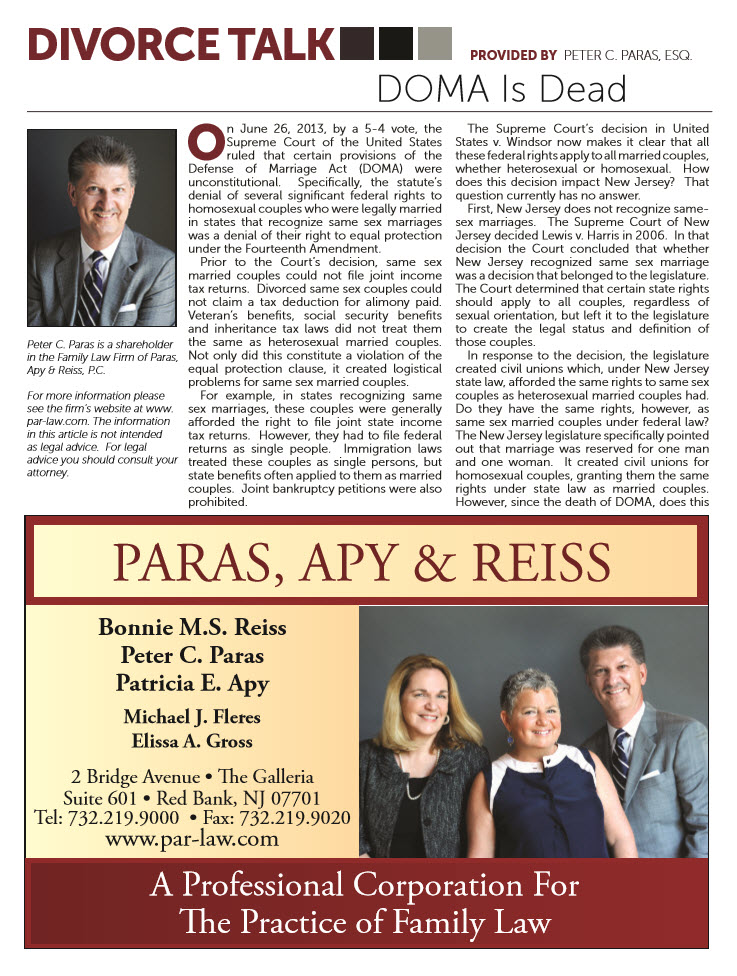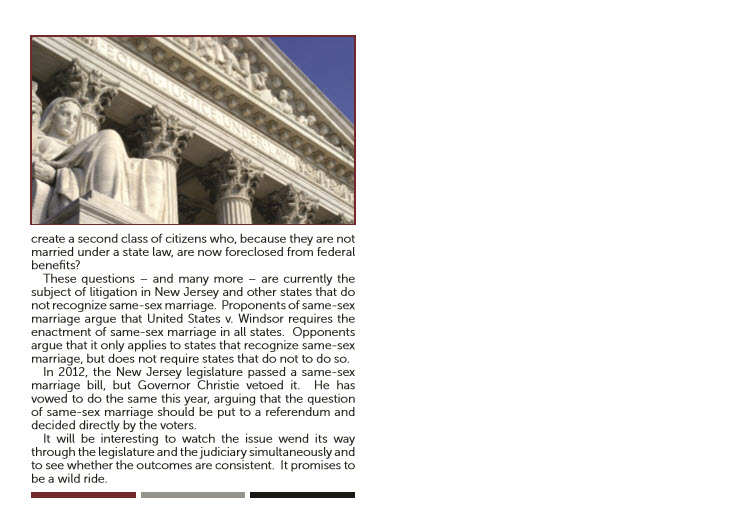On June 26, 2013, by a 5-4 vote, the Supreme Court of the United States ruled that certain provisions of the Defense of Marriage Act (DOMA) were unconstitutional. Specifically, the statute’s denial of several significant federal rights to homosexual couples who were legally married in states that recognize same sex marriages was a denial of their right to equal protection under the Fourteenth Amendment.
Prior to the Court’s decision, same sex married couples could not file joint income tax returns. Divorced same sex couples could not claim a tax deduction for alimony paid. Veteran’s benefits, social security benefits and inheritance tax laws did not treat them the same as heterosexual married couples. Not only did this constitute a violation of the equal protection clause, it created logistical problems for same sex married couples.
For example, in states recognizing same sex marriages, these couples were generally afforded the right to file joint state income tax returns. However, they had to file federal returns as single people. Immigration laws treated these couples as single persons, but state benefits often applied to them as married couples. Joint bankruptcy petitions were also prohibited.
The Supreme Court’s decision in United States v. Windsor now makes it clear that all these federal rights apply to all married couples, whether heterosexual or homosexual. How does this decision impact New Jersey? That question currently has no answer.
First, New Jersey does not recognize samesex marriages. The Supreme Court of New Jersey decided Lewis v. Harris in 2006. In that decision the Court concluded that whether New Jersey recognized same sex marriage was a decision that belonged to the legislature. The Court determined that certain state rights should apply to all couples, regardless of sexual orientation, but left it to the legislature to create the legal status and definition of those couples.
In response to the decision, the legislature created civil unions which, under New Jersey state law, afforded the same rights to same sex couples as heterosexual married couples had. Do they have the same rights, however, as same sex married couples under federal law? The New Jersey legislature specifically pointed out that marriage was reserved for one man and one woman. It created civil unions for homosexual couples, granting them the same rights under state law as married couples. However, since the death of DOMA, does this DOMA Is Dead create a second class of citizens who, because they are not married under a state law, are now foreclosed from federal benefits?
These questions – and many more – are currently the subject of litigation in New Jersey and other states that do not recognize same-sex marriage. Proponents of same-sex marriage argue that United States v. Windsor requires the enactment of same-sex marriage in all states. Opponents argue that it only applies to states that recognize same-sex marriage, but does not require states that do not to do so.
In 2012, the New Jersey legislature passed a same-sex marriage bill, but Governor Christie vetoed it. He has vowed to do the same this year, arguing that the question of same-sex marriage should be put to a referendum and decided directly by the voters.
It will be interesting to watch the issue wend its way through the legislature and the judiciary simultaneously and to see whether the outcomes are consistent. It promises to be a wild ride.


